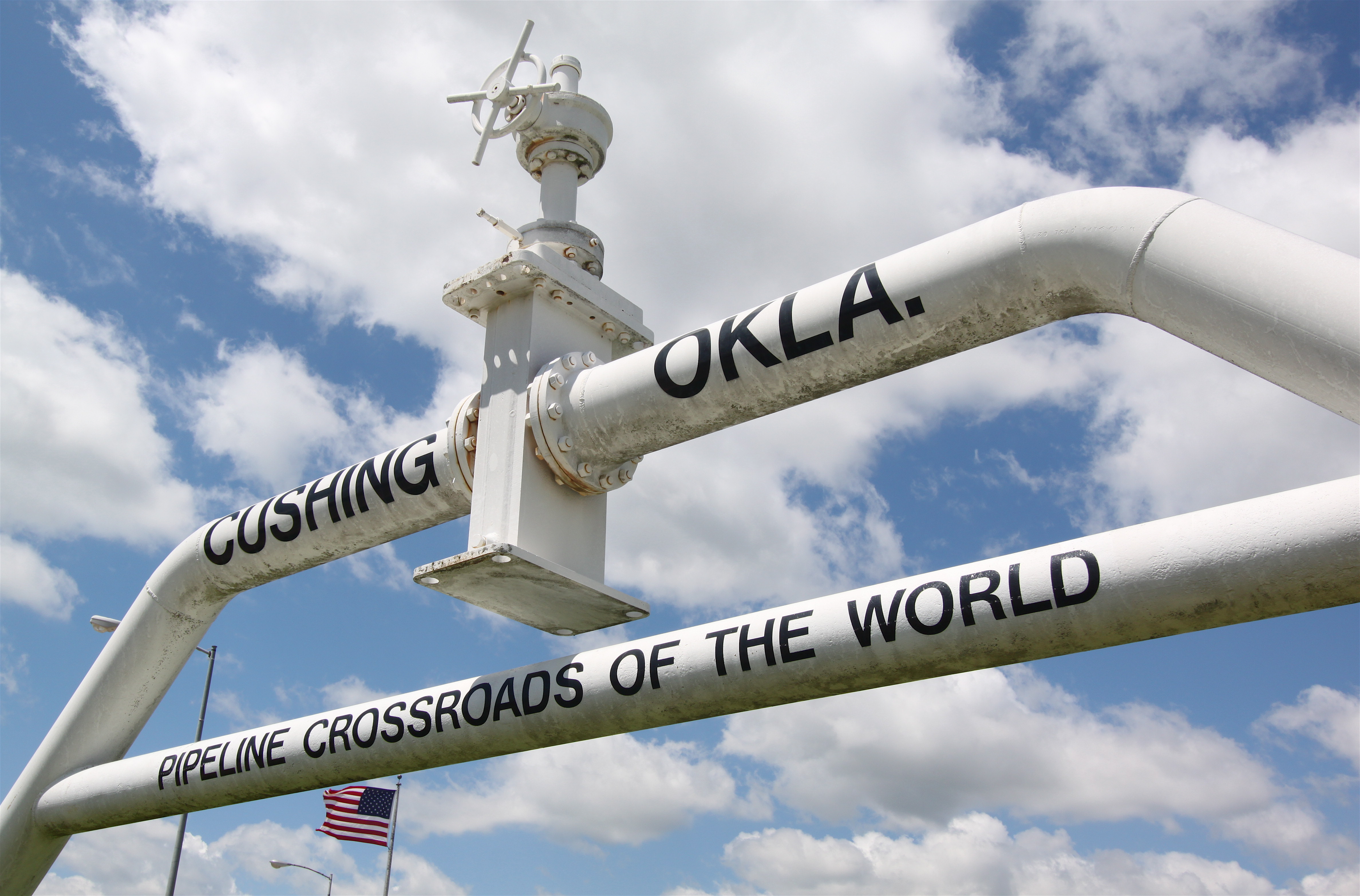New Pipelines, Hurricane Drive WTI Inventories Down, Prices Up
As shippers send more Permian crude to the Gulf Coast, there's more competition for Cushing barrels.
HOUSTON (Reuters) — U.S. oil futures rose 1.7% on Thursday, lifted by a deep draw on U.S. crude inventories, especially at the benchmark's delivery hub due to increased demand with the start-up of two new West Texas pipelines.
The approach of Hurricane Dorian toward Florida also raised fears that offshore U.S. crude producers may slow output if the storm passes into the Gulf of Mexico over the weekend, analysts said.
West Texas International (WTI) crude settled at $56.71 a barrel, up 93 cents, or 1.7%. Brent crude settled at $61.08, up 59 cents, or 0.98%.
"There's a storm premium in the WTI price," said Phil Flynn, an analyst at Price Futures Group in Chicago. "The track of the storm is kind of dangerous for Gulf of Mexico production."
Dorian is forecast to strengthen and become a highly dangerous Category 4 hurricane on Sunday, the National Hurricane Center said.
Government data on Wednesday showed U.S. crude stocks dropped last week by 10 million barrels to their lowest since October as imports slowed. Inventories at the nation's main delivery hub in Cushing, Oklahoma, where WTI futures are priced, slumped last week by nearly 2 million barrels to their lowest since December.
Cushing stocks have dropped by more than 300,000 barrels since the government report, traders said, citing intelligence firm Genscape's midweek report.
The drop came after two new pipelines opened in the Permian Basin this month, flowing crude to the U.S. Gulf Coast and tightening supplies at Cushing.
As shippers send more Permian crude to the Gulf Coast, "there's more competition for Cushing barrels," said Andy Lipow, president of Lipow Oil Associates in Houston. "You'll see a continued decline in Cushing inventories."
EPIC Midstream Holdings LLC and Plains All American Pipeline LP both opened new lines from the Permian to Corpus Christi, Texas, in mid-August. The lines will eventually have a combined capacity of more than 1 million barrels per day (bpd), the companies have said.
"The market is bid on filling these lines," said Robert Yawger, an analyst at Mizuho in New York. "Things have changed drastically in just two or three weeks. And you're going to have another big pipeline that's going to continue to change the math."
Phillips 66 expects its 900,000 bpd Gray Oak pipeline to come into service before the end of the year.
On Wednesday, EPIC proposed to lower transportation rates on its 400,000 bpd line to $1.35 a barrel from $2.50, effective Sept. 1, according to U.S. regulatory filings. Cheaper rates will encourage greater flows to the coast and reduce deliveries into Cushing, analysts said.
Concerns about a slowdown in economic growth due to the U.S.-China trade war raging between the world's biggest oil consumers, along with the potential hit to oil demand, are keeping prices in check.
China's commerce ministry said on Thursday China and the United States were discussing the next round of face-to-face trade talks scheduled for September, but hopes for progress hinged on whether Washington could create favourable conditions.
Media reports that China will not retaliate anytime soon against the United States because of new U.S. tariffs "is tamping down fears of the trade wars," said Gene McGillian, vice president of market research at Tradition Energy in Stamford, Connecticut.
Related News
Related News

- Keystone Oil Pipeline Resumes Operations After Temporary Shutdown
- Biden Administration Buys Oil for Emergency Reserve Above Target Price
- Freeport LNG Plant Runs Near Zero Consumption for Fifth Day
- Enbridge to Invest $500 Million in Pipeline Assets, Including Expansion of 850-Mile Gray Oak Pipeline
- Mexico Seizes Air Liquide's Hydrogen Plant at Pemex Refinery
- Evacuation Technologies to Reduce Methane Releases During Pigging
- Editor’s Notebook: Nord Stream’s $20 Billion Question
- Enbridge Receives Approval to Begin Service on Louisiana Venice Gas Pipeline Project
- Mexico Seizes Air Liquide's Hydrogen Plant at Pemex Refinery
- Russian LNG Unfazed By U.S. Sanctions





Comments